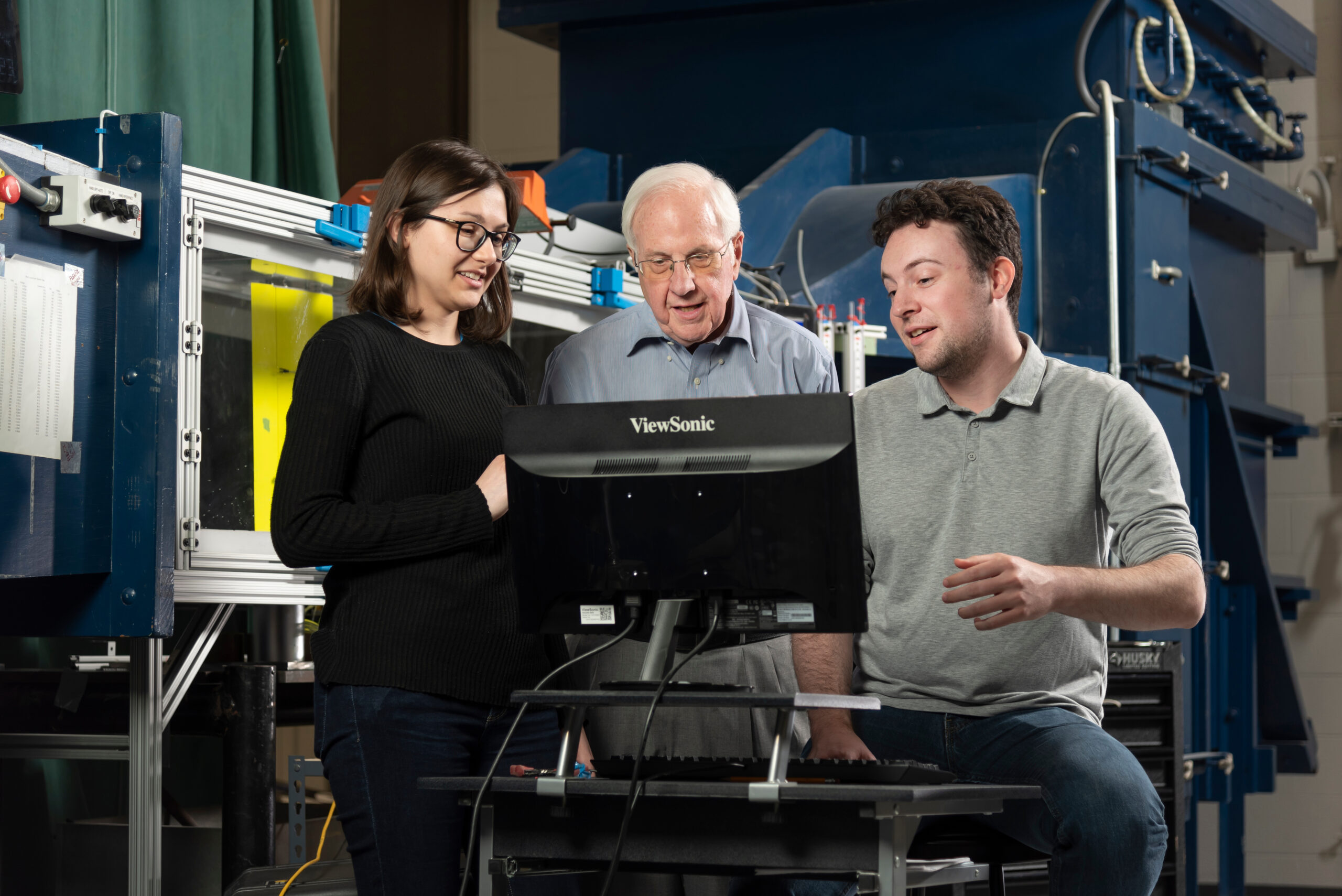
Aerospace Engineering Undergraduate Certificate

World-Class Faculty. Hands-On Experiences.
This is a program for aspiring engineers who want to work on challenges related to aircraft and spacecraft.
Open to all engineering majors. Successful completion of the certificate is noted on your Duke transcript.
Hands-On Experiences
While you work toward the certificate, you’ll have access to participate in the student chapter of the American Society of Mechanical Engineers (ASME) and the rocket-building Duke AERO club.
Related Student Clubs & Teams
- Academy for Model Aeronautics
- Duke Aviation Association
- Duke Motorsports
- Duke Robotics
Tuned to Industry Needs
Unlike traditional aerospace engineering programs, this Duke MEMS undergraduate certificate is tuned to modern industry needs.
Our students leave the program inspired and equipped for careers in the aerospace industry and the public sector.
Many go on to graduate study in leading aerospace engineering programs.
Technical Training From Top Faculty
Duke’s aerospace engineering faculty ranks among the nation’s most accomplished.
Courses on flight vehicle applications are taught by expert faculty actively involved in cutting-edge aerospace research.

Open to All Engineering Majors
Duke MEMS will provide you the flexibility you need to complete this certificate and your major, regardless of department. Questions? Please contact our certificate coordinator.
-
Required:
ME 472 Aircraft Performance and Design
An overview of the aerodynamics of wings and bodies including profile and induced drag, performance of propellers and internal combustion and gas turbine power plants; the power curve and implications on the performance of the aircraft in steady-state and accelerated flight included power required, airspeeds to fly, takeoff and landing performance, performance of aircraft in turning flight; introduction to the conceptual design of new aircraft. Co-requisite: ME 336L Fluid Mechanics.
-
Choose two:
- Control Systems
- Fluid Mechanics
- Heat and Mass Transfer
Important Note
Two courses are already required for the Mechanical Engineering major. Substitutions are possible for non-ME students.
-
Choose one:
- Aerodynamics
- Aerospace Structures
- Compressible Fluid Flow
-
Choose two:
- Computational Fluid Mechanics and Heat Transfer
- Spacecraft Flight Dynamics
- Aerodynamics
- Aerospace Structures
- Engineering Acoustics
- Finite Element Method
- Mathematical Fluid Dynamics
- Compressible Fluid Flow
- Intermediate Dynamics
- Applied Mathematics
- Advanced Mechanical Vibrations
- Modern Control and Dynamic Systems
- Introduction to Robots and Automation
- Special Topics Courses related to Aerospace Engineering
- Graduation with Departmental Distinction Independent Project Course
—If your project is aerospace related, it can be used for GwDD. - Independent Project Course
—If aerospace related, independent projects from other engineering departments are permitted. - Pratt Research Fellows Independent Study Course
—If aerospace related, Pratt Fellows from other engineering departments are permitted
Important Note
Other senior- and graduate-level courses in related areas such as control, robotics and structures are also permissible subject to approval of the aerospace certificate program coordinator. New courses may also be created in the future.
-
A course in the Trinity College of Arts & Sciences.
Choose one:
- Economics — applicable to large or international corporate structures
- History — applicable to the role of technology and science
- Public Policy — applicable to the use and impact of technology
Important Note
This course is to be approved by the certificate coordinator. Other course options will be considered on an individual basis with consideration given to the relevance to the field.


